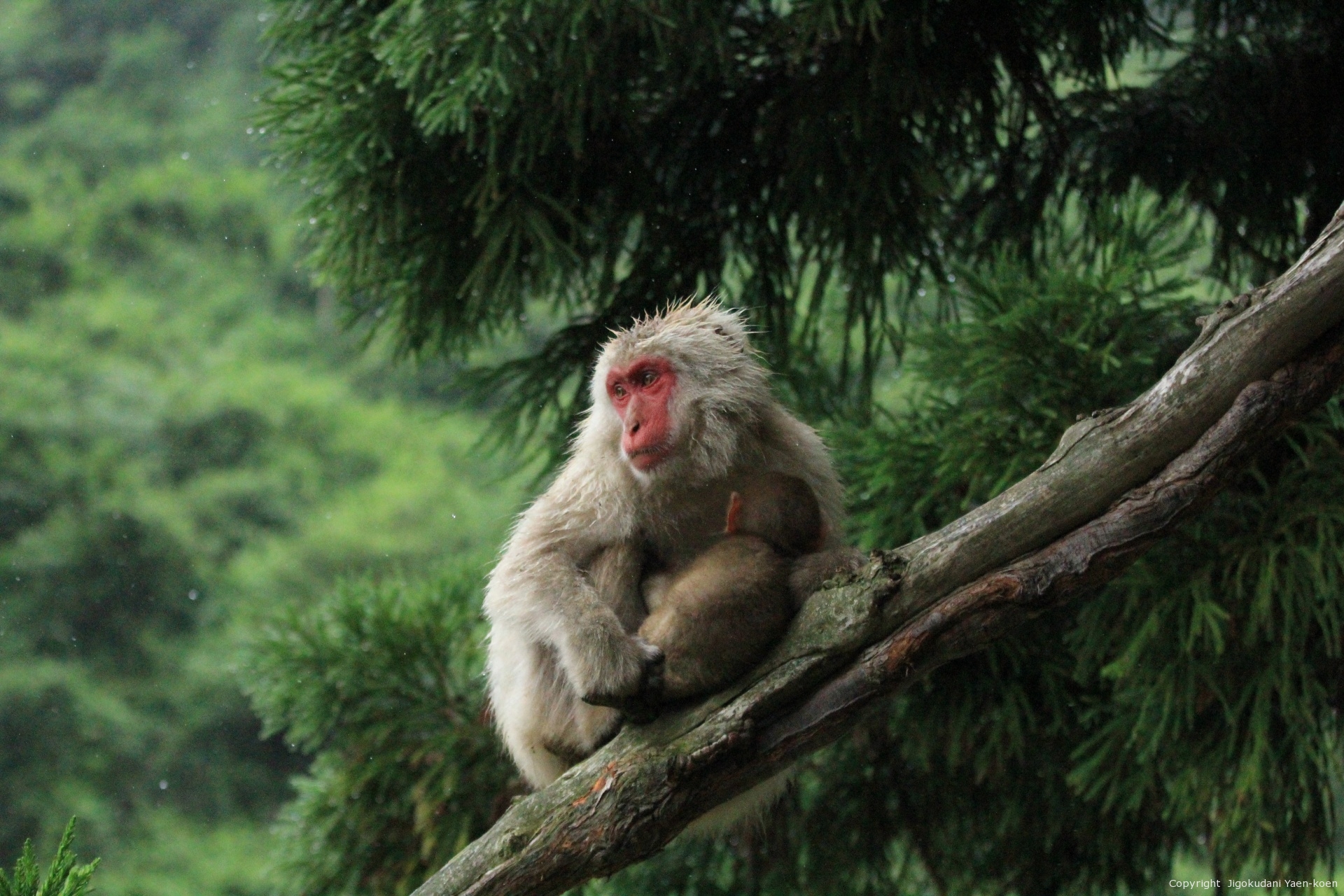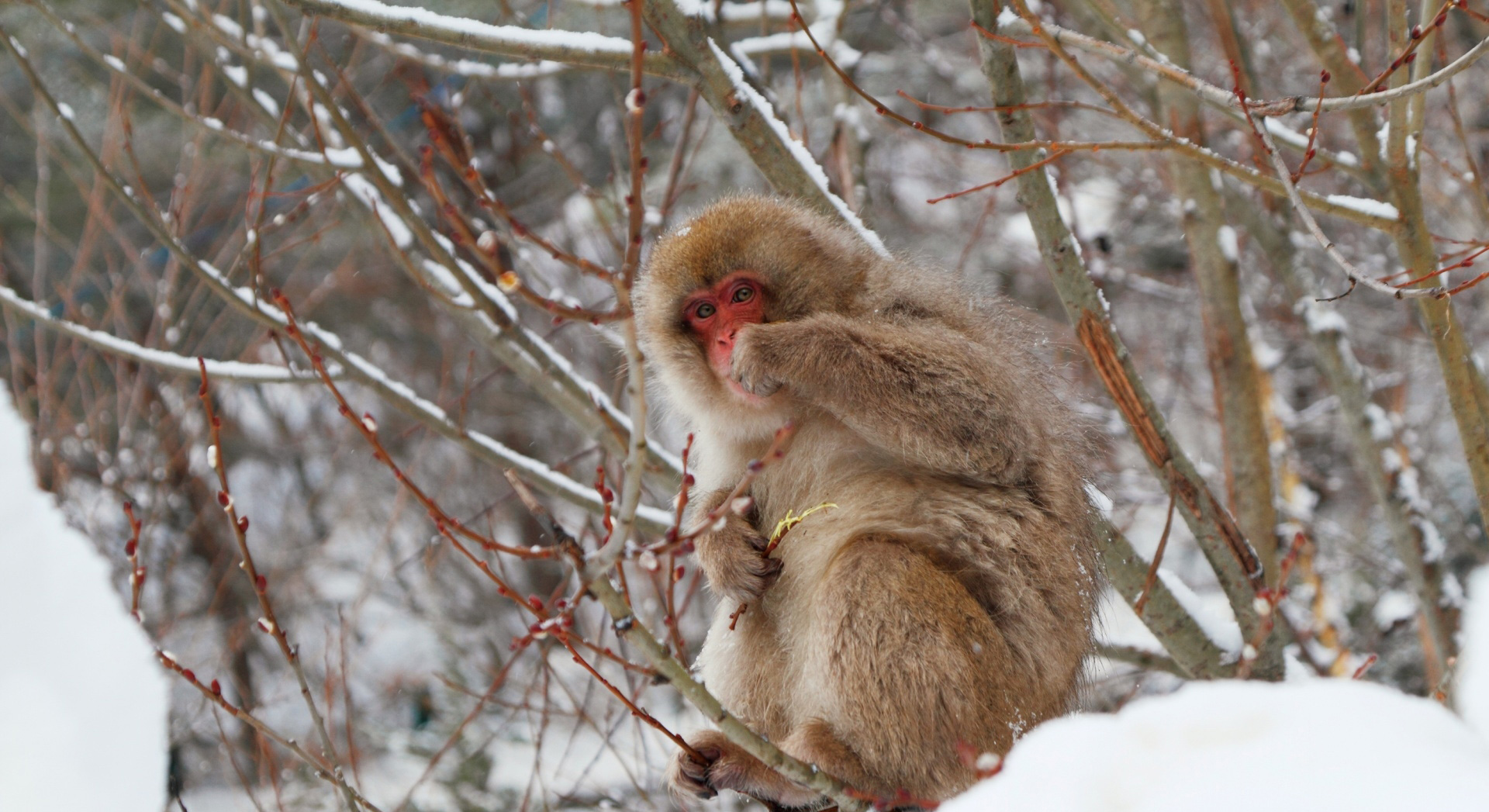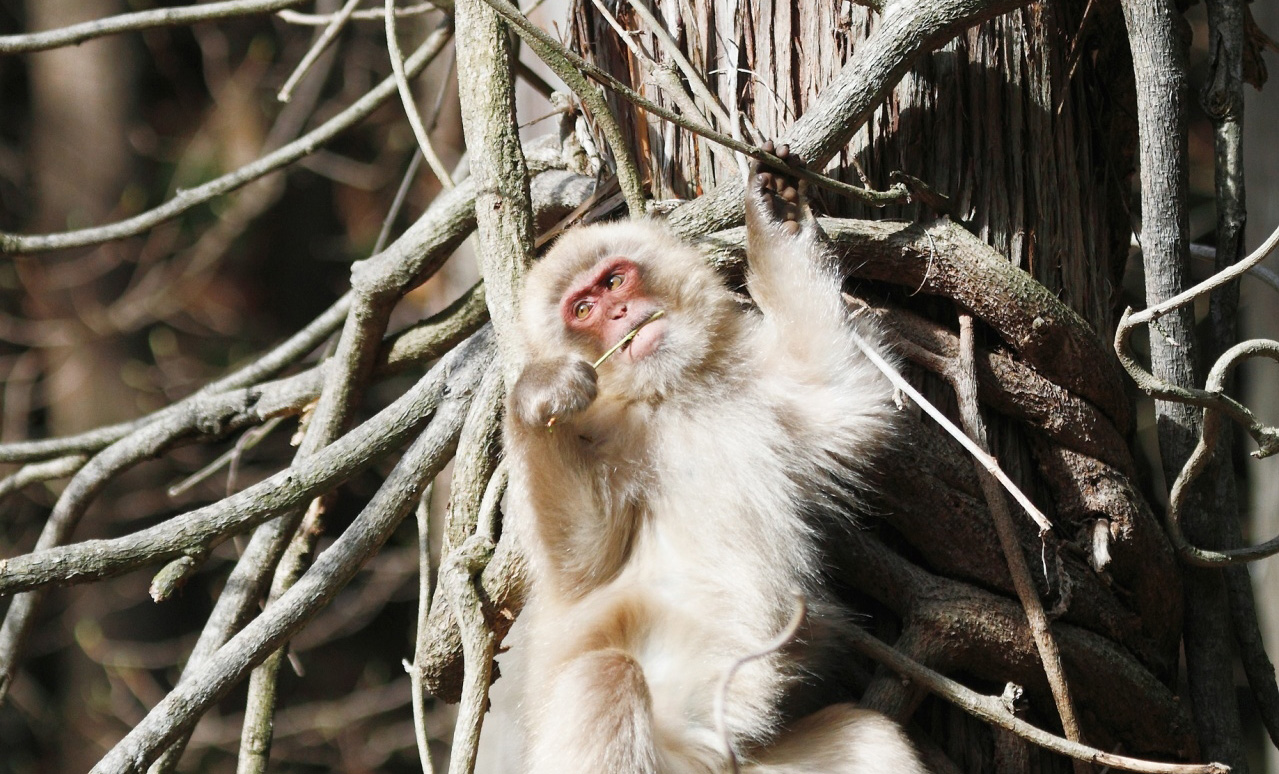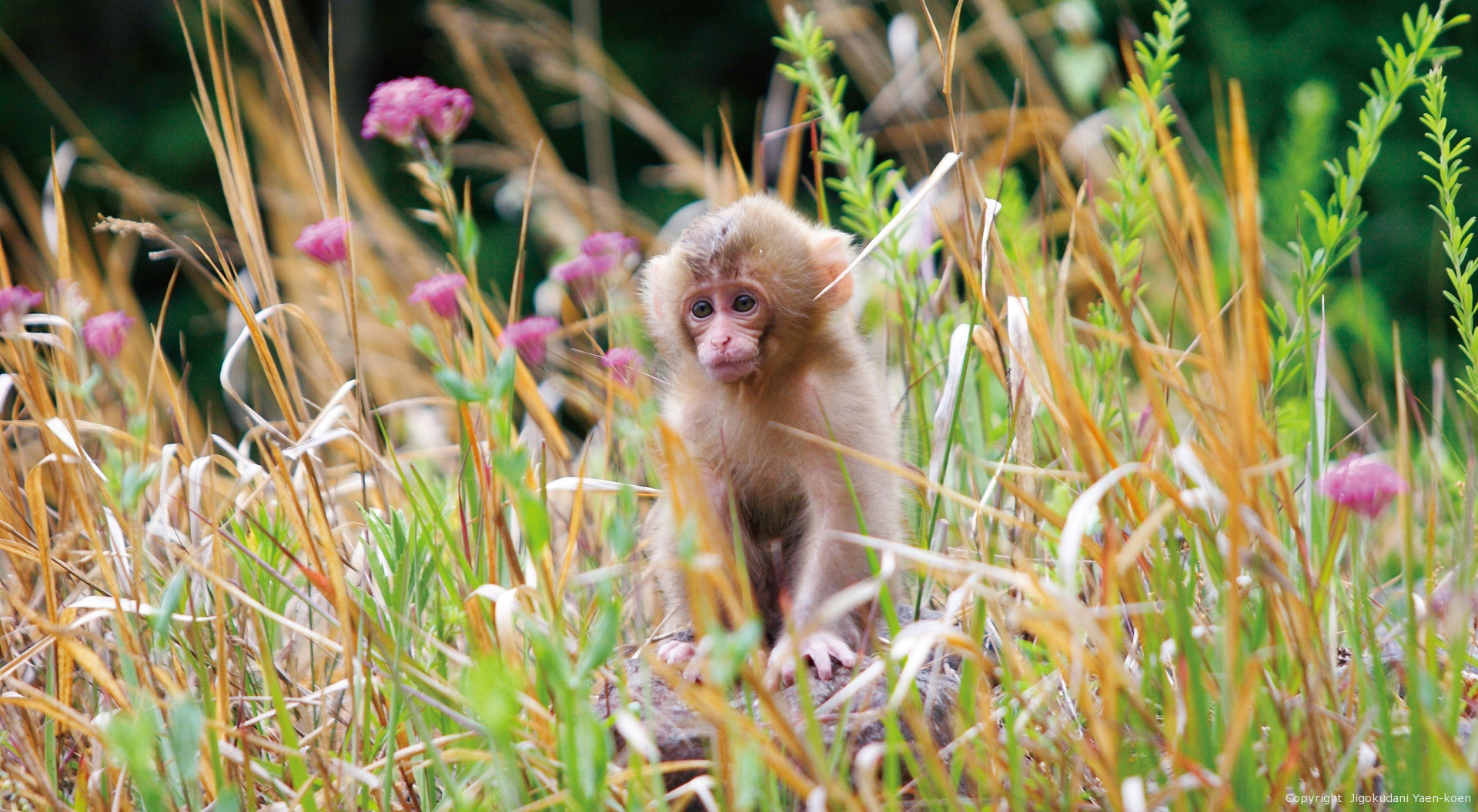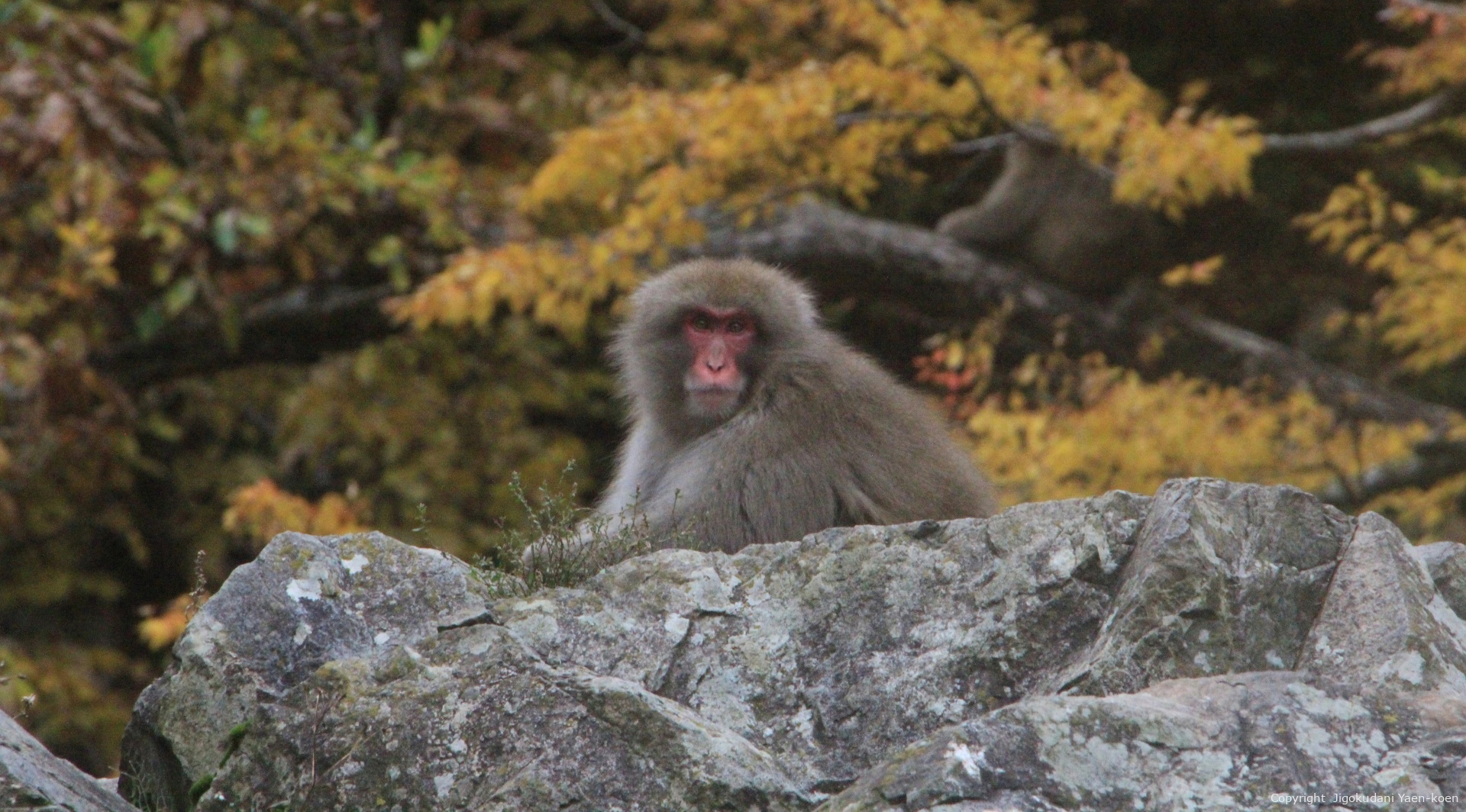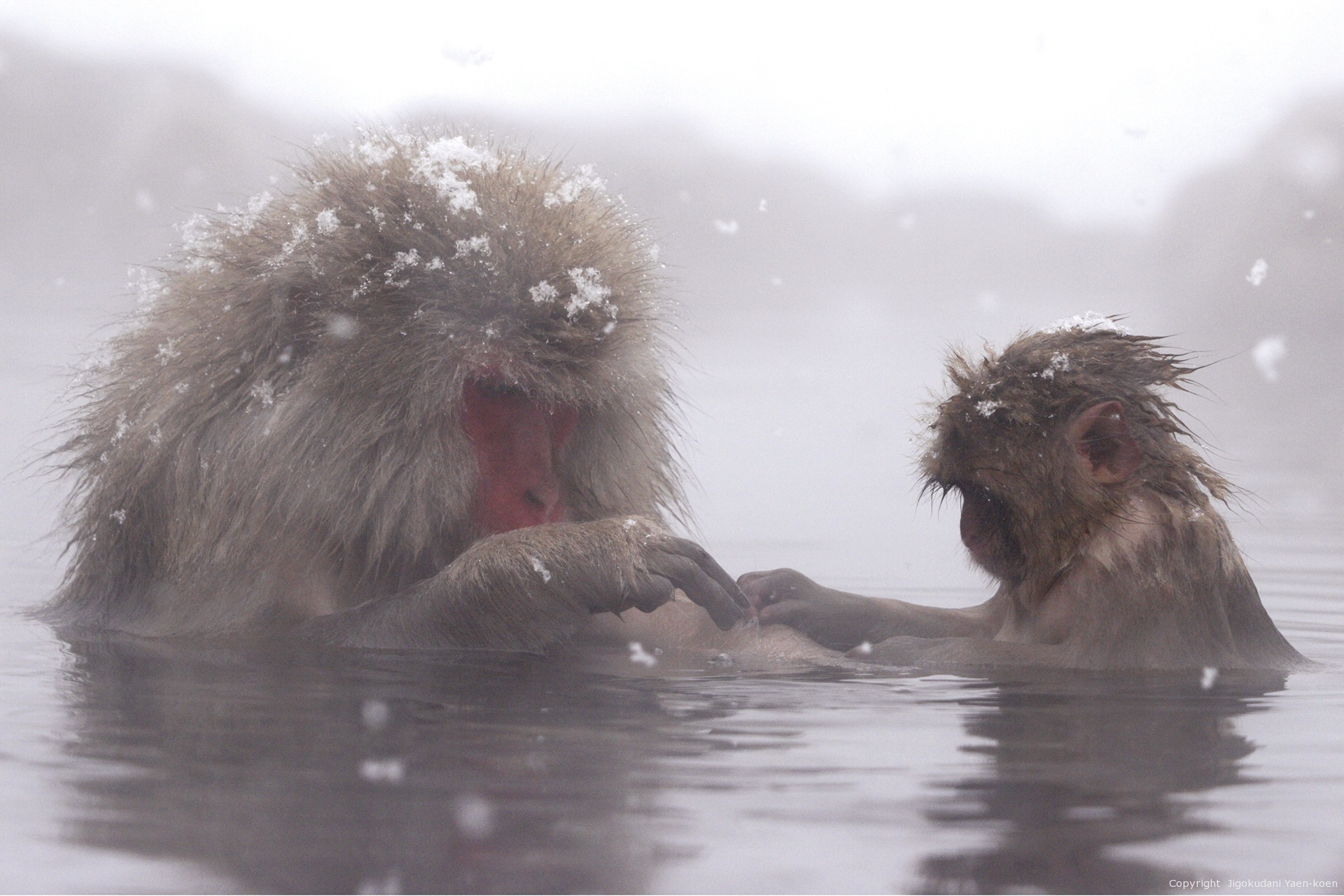The society of monkeys
A troop of the Japanese Macaque
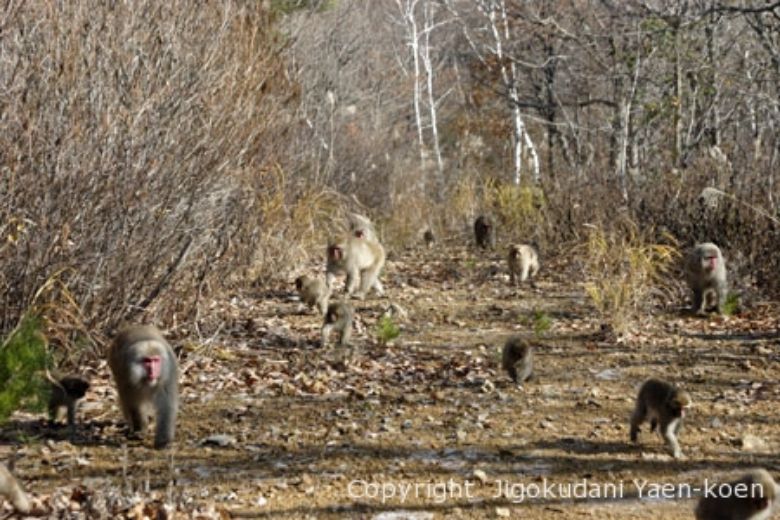
Japanese macaques (snow monkeys) generally live in groups known as “troops” which usually comprise several males, about two-to-three times the number of females, and their young. These troops vary in size, ranging from several dozen to (in rare cases) upwards of 100 monkeys. Each troop’s area of frequent activity usually extends out to a radius of several kilometers (although this varies by individual habitat), and its members constantly move around throughout that area.
Females generally spend their entire life in their birth troop, whereas many of the males will leave their original troop. These monkeys live as solitary males for a time before eventually joining another troop and then another, moving between multiple groups throughout their lives. A troop is, therefore, organized primarily around its adult females and their children. No single monkey takes charge to lead the others; instead, all members rely upon and trust one another, working together.
Communicate
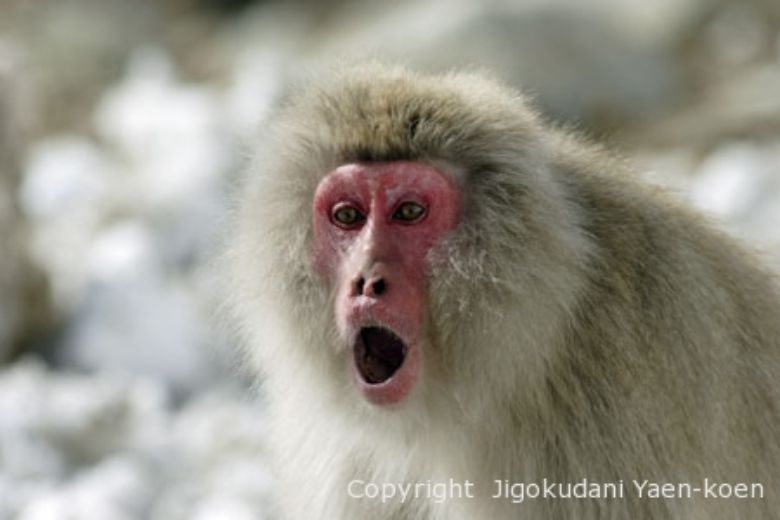
Monkeys mainly get information by eyesight. Also they communicate each other through sights. They read partners mood with seeing their expression and attitude.
Although it is not quite language, they have some typical sounds such as alarm, intimidation, yelp and signal of existence etc. They express their feelings by differences of tone and volume. Firstly they make sounds to get attention and then confirm with eyesight. Monkeys have better hearing and sense of smell than human, and use five senses, mainly eyesight, to live.
For monkeys in a troop, it is very important to understand each other.
They always care about members’ attitude and the atmosphere in the troop. This is the same that we call ‘Read between the lines’. Monkeys have an amazing ability for it.
Family
In the society of the Japanese Macaque, both males and females have many partners in a breeding season. Females know own mother-child relationships between their infants but there is no father-child relationships. Neither males nor infants know their own father-child relationships. That’s why males do not get engaged child-raising.
Only mothers breast-feed infants and stay together all the time to guard them from dangerous. But this is only for infants of one’s own and for immediate family. They do not care if other infants are in a danger. In that case males help such infants. Males have the role of father for all members of the troop.
Who is the boss monkey?
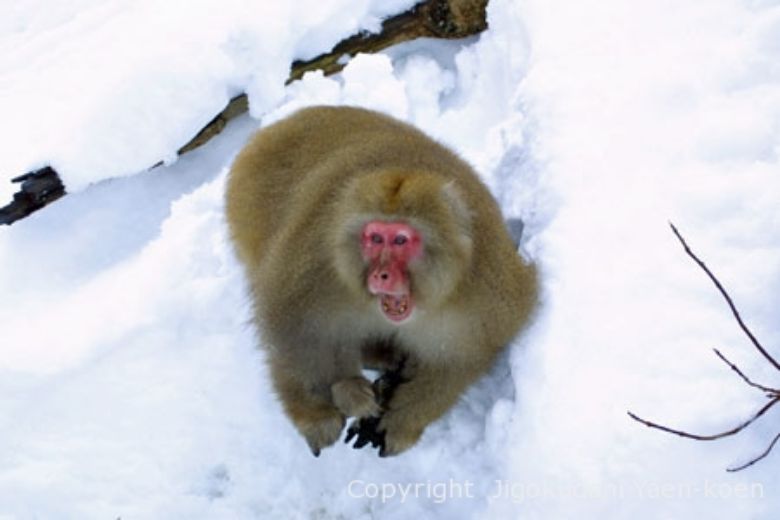
It seems that the common image of the Japanese macaque is ‘Boss’. Actually, many people visiting here ask us ‘Which monkey is the boss?’
What image of ‘boss’ do you have?
Maybe, the boss has large body and acts big, and he always stay at a high place. He eats first, all babies are his children. He fights with younger one and leave the troop when he lose…etc.
These are not true. In fact, there is not so much difference about the body size among male monkeys. Rather than the boss acts big, other monkeys behave with modesty to the boss. It is true that sometimes the boss climbs and shakes a tree but he usually stays and relaxes in the shade and we can hardly find him. There is abundant food in the forest so monkeys do not need to fight each other to get food.
All males and females choose their mating partner. We have not seen a tough fight to get the status of the boss among males.
We find no superiorities of the boss like common images. We do not think that other young males want to become the boss someday in their future. The hierarchy in a troop is just a temporary thing and is not important for males who leave the troop before long.
A hierarchy exists within each Japanese macaque troop, and the top monkey in that hierarchy is often called the “boss.” This boss monkey takes the lead in striking back against outside threats, will stare down any unattached, solitary male that appears in the vicinity, and handles various other such roles. The boss also metes out punishments for members of the troop who instigate quarrels and remonstrates members as necessary. It is an important job occupied by a high-ranking male monkey, and it is clear that theirs is an outstanding position within the troop upon which other members rely.
At Jigokudani Wild Snow Monkey Park, we honor each of the boss monkeys with the title ryu-oh, meaning “Dragon King.” In recent years, researchers in the field of Japanese macaques have been calling for people to stop using the imprecise term “boss,” although the word is still used widely among non-specialists. In addition to “boss,” some people use terms such as “leader,” “number one monkey” and “alpha male.” Whatever the terminology used, we hope you will endeavor to better understand the true structure of Japanese macaque society.


